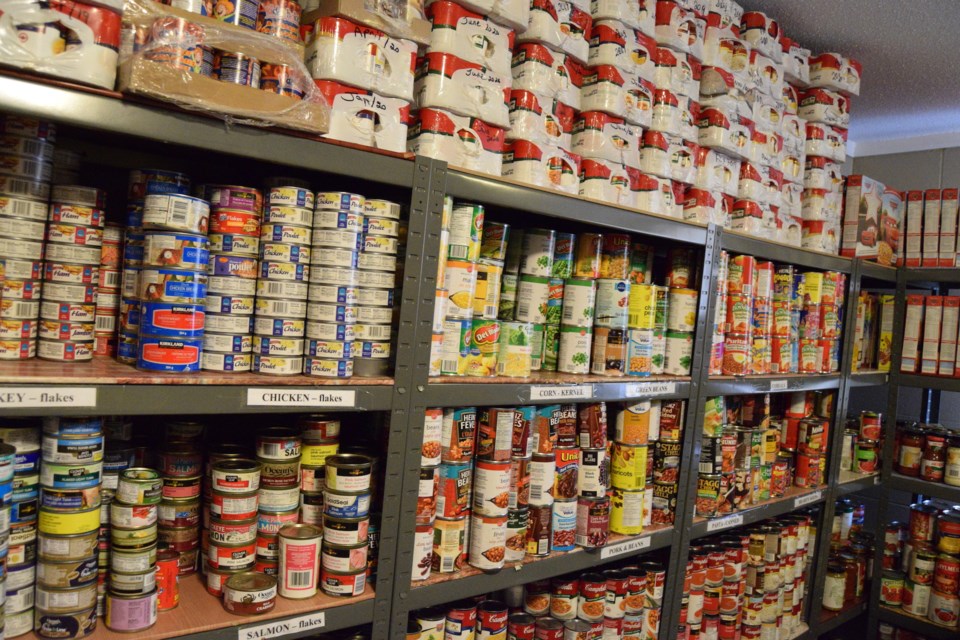BARRHEAD - Homelessness and those who are housing insecure in Barrhead are at or near a record high, if the number of people asking Barrhead and District Family Community Support Services (FCSS) for help is any indication.
"Throughout the summer, we have never seen this many homeless people in our community turn to us for help," FCSS executive director Karen Pronishen told Town of Barrhead councillors on Oct. 22.
She was at council to present the not-for-profit society's proposed 2025 operational budget for approval.
Coun. Ty Assaf said the Town of Barrhead, like many other municipalities across the province, does not have enough affordable housing, saying that, as a result, it isn't surprising that the number of homeless is on the rise.
He then asked what FCSS is doing to support the homeless who walk in their doors.
"Are you providing them shelter, putting them at hotels, or in the homes of people who have volunteered?" Assaf asked.
Pronishen replied that many of the people who are housing insecure come from other communities.
"We work with them to see where they are at," she said. "Are they receiving the appropriate funding that they are entitled to? If not, we will help get them funding."
Pronishen added that FCSS has put people in local motels and campgrounds as a stop-gap measure while their clients wait for their support to kick in.
In some cases, she said, they have arranged transportation to larger centres with appropriate support.
"We recently got a call from the hospital about a [a domestic abuse victim] and that we needed to get her to a shelter," Pronishen said. "She wasn't from the community and did not want to stay, so we arranged to take her to Whitecourt."
However, she said that providing these supports, whether paying for temporary accommodations, transportation, or food, is outside FCSS's traditional mandate.
As such, they cannot take the funds from regular FCSS funding, which can only be used to pay for preventative programs.
"So we have to take it from our community-raised funds," Pronishen said.
She said that to help come up with potential solutions, FCSS applied for a Reaching Home grant that the federal government created as part of Canada's national homelessness strategy. In Alberta, $4 million was available for organizations in rural communities working to reduce or prevent homelessness.
"We applied for expenditures and staff to coordinate a committee that could start to address this issue, and we got [$30,000] for two years," Pronishen said. "We can't do anything for $15,000 a year."
As a result, she said, FCSS can only dedicate one staff member to the issue for one day a week.
"With winter coming, those that do not have a place, whether in someone's home or a sheltered area, we fear what will happen to them," Pronishen said.
Coun. Dave Sawatzky then asked if Pronishen knew of any government grants available to create a permanent or temporary homeless shelter.
Pronishen did not know the answer.
"Having our own shelter in Barrhead wouldn't be cost-effective," she said, adding she had no answer. "It really isn't FCSS's mandate, but it is in our lap because there is nowhere else for them to turn."
Pronishen added housing security wasn't the only problem people were turning to FCSS for.
She added an increasing number of people are also turning to the food bank.
Although Pronishen said FCSS had taken steps, such as partnering with local grocery stores, as well as those in other communities and accessing the Parkland County and Alberta food banks, which have allowed them to buy less food, they increasingly have to buy items to supplement what they receive.
She noted that if things continue the way they are going, they will have to consider reducing the amount of food in their hampers, adding that they've already started having those discussions.
"The amount of [monetary] donations coming in does not equal what is going out, and we've had to dip into the cushion we've built up, which we were running the food bank on, but at some point, it is going to be gone," Pronishen said. "Food drives are great, and if our shelves are empty, it stocks them for a while, but what is best is cash donations. That way, we can buy what we need, don't have to worry about storage space, and nothing goes to waste."
Barry Kerton, TownandCountryToday.com



